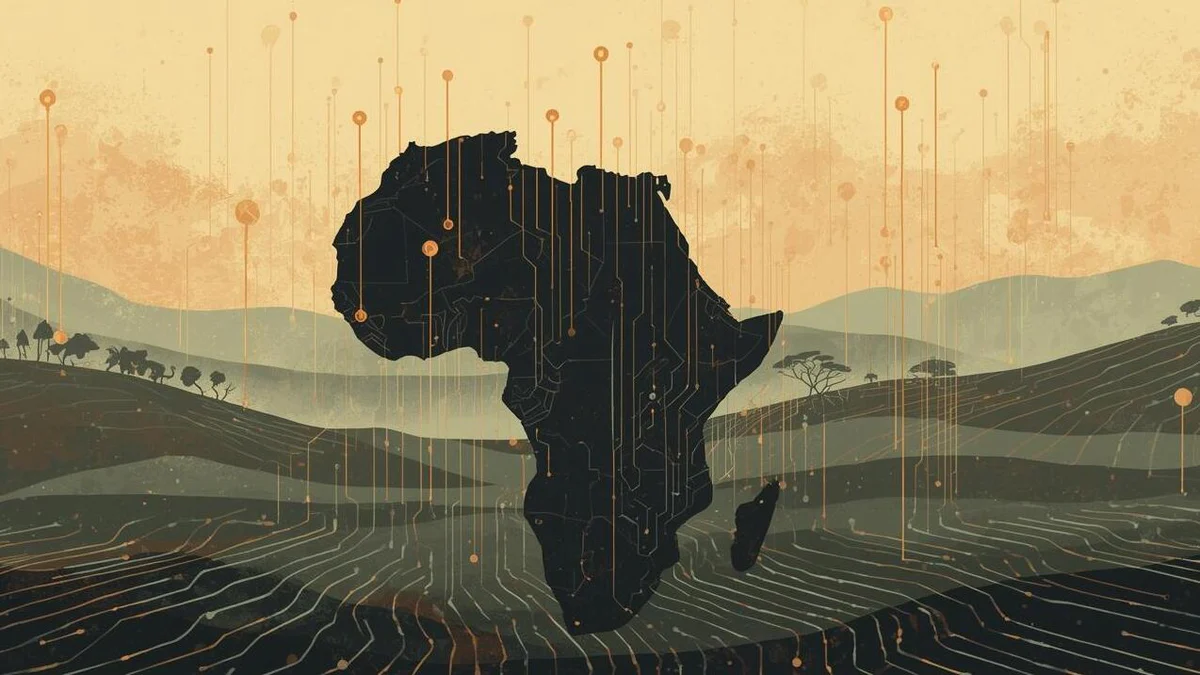Africa's Local Languages Face Critical AI Development Challenge
Africa stands at a crucial crossroads in the global AI revolution, facing the challenge of preserving and integrating its rich linguistic heritage into emerging technologies. While the continent lags in AI development, this presents a unique opportunity to pioneer inclusive AI systems that embrace linguistic diversity.

African researchers working on AI language models to preserve local linguistic heritage
Africa's Local Languages Face Critical AI Development Challenge
As artificial intelligence (AI) continues its rapid global evolution, a crucial question emerges: how can Africa's local languages secure their place in a technological ecosystem dominated by English, Mandarin, and Spanish? While the continent grapples with significant delays in industrial and scientific AI deployment, it simultaneously finds itself at the heart of a strategic challenge: the survival, valorisation, and integration of its languages in tomorrow's digital universe.
Global Context and Technological Asymmetry
The United States, China, and to a lesser extent, Europe, currently concentrate the majority of AI-related infrastructure, funding, and patents. This imbalance creates a stark digital divide that particularly affects the Global South.
- Research Concentration: A mere ten countries produce 80% of scientific publications in the field
- Private Sector Dominance: Tech giants (Google, Microsoft, OpenAI, Baidu, Tencent) largely dictate research and development priorities
- Infrastructure Gap: Access to supercomputers and large language models remains highly unequal
In this global landscape, Africa faces structural challenges in funding, training, and data availability. However, this deficit could become a strategic advantage if the continent successfully leverages its linguistic and cultural specificities.
The Critical Role of African Languages
Africa hosts over 2,000 languages, many fragmented and underrepresented in the databases used to train language models. This linguistic diversity presents both challenges and opportunities:
- Digital Erasure Risk: The absence of Wolof, Lingala, Swahili, or Hausa data leads to these languages' gradual invisibility in digital spaces
- Cultural and Identity Stakes: Losing linguistic anchoring threatens both cultural transmission and cognitive sovereignty
- Opportunity for Innovation: Developing structured corpora and targeted machine translation programs could transform this challenge into a differentiating advantage
Emerging Local Initiatives
Several African projects are working to bridge this divide:
- Masakhane: A pan-African network of researchers focused on machine translation for African languages
- Academic Institutions: Universities in Nairobi, Johannesburg, and Accra are investing in Natural Language Processing (NLP) laboratories
- Start-ups: Local entrepreneurs are developing voice solutions adapted to African markets in banking, health, and education
Geopolitical and Economic Implications
Ignoring the language question means accepting long-term technological dependence. The consequences manifest across multiple dimensions:
- Economic Impact: Local actors risk marginalisation in the global digital economy
- Political Sovereignty: States' capacity to regulate AI usage may be compromised
- Social Cohesion: The gap between elite English speakers and local language users could widen
Africa's AI lag shouldn't be viewed solely as a disadvantage. The battle for local languages represents a crucial dimension of sovereignty and a strategic opportunity. With clear, coherent, and sustainable investments in corpus development, engineer training, and infrastructure funding, the continent could position itself not as a follower but as an original player, capable of reinventing AI rooted in its social, economic, and cultural realities.
Thomas Reynolds
Correspondent for a London daily, specialist in British foreign policy and transatlantic issues.
